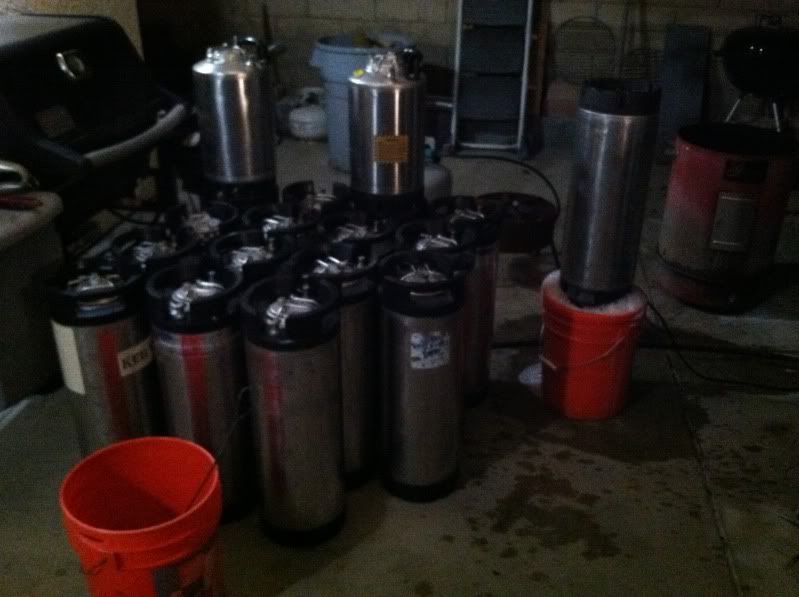kombat
Well-Known Member
I know one of the main arguments in favour of kegging over bottling is the supposed time savings. However, I'm wondering if maybe my process sucks, or if I'm overdoing it, as I feel like I'm spending a ton of time on my keg cleaning process.
When a keg kicks, here's what I do.
That takes me at least 30 minutes, usually 45. Does anyone have a faster method? Maybe there are some steps I can skip, or only do every 2-3 cleanings? This is one of the less enjoyable aspects of home brewing, so I welcome any suggestions!
When a keg kicks, here's what I do.
- Mix up a fresh batch of Oxyclean or PBW in hot water. Pour some in a small bucket (a popcorn bucket from the movie theater)
- Disconnect gas and beverage lines, then pull pressure relief valve to vent remaining CO2.
- Remove the lid and drop it in the popcorn bucket to soak in PBW.
- Take a wrench, remove the gas and liquid posts, drop them in the bucket with the lid.
- Remove the gas and liquid dip tubes and O-rings, put in popcorn bucket to soak.
- Pour the how PBW solution into the keg. Scrub inside with a toilet brush.
- Pour the PBW out of the keg, back into the bucket. Rinse the inside with hot water 3 times.
- With an old toothbrush, I scrub the keg posts, lid, and gas dip tube. I use a long pipecleaner-type brush to clean inside the dip tubes. I clean the outside of the liquid dip tube with a sponge. Rinse everything.
- Reinsert the dip tubes, O-rings, and keg posts. I brush on a little keg lube onto the O-rings with a Q-tip. I tighten down the posts.
- I pour some StarSan into the keg, seal the lid, and shake vigorously.
- Connect the beverage line and a CO2 tank, with pressure set to 5 psi. I open the picnic tap and run some StarSan through the beverage line to clean it.
- Disconnect the gas and beverage lines. I leave the StarSan in the beverage line until it's needed again.
- Pop the keg lid, pour out remaining StarSan.
- Put the lid back on, reconnect the CO2 and pressurize to 10 psi.
- Spray StarSan around the lid and posts to check for bubbles (leaks).
That takes me at least 30 minutes, usually 45. Does anyone have a faster method? Maybe there are some steps I can skip, or only do every 2-3 cleanings? This is one of the less enjoyable aspects of home brewing, so I welcome any suggestions!





































![Craft A Brew - Safale BE-256 Yeast - Fermentis - Belgian Ale Dry Yeast - For Belgian & Strong Ales - Ingredients for Home Brewing - Beer Making Supplies - [3 Pack]](https://m.media-amazon.com/images/I/51bcKEwQmWL._SL500_.jpg)






















